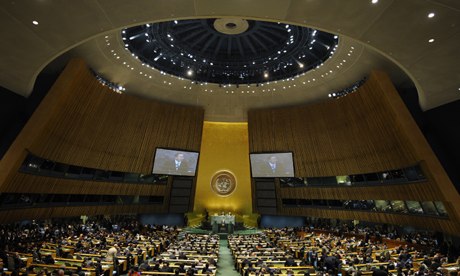
OVERVIEW
MANAGEMENT
PERFORMANCE
POSSIBILITIES
CAPITALS
ACTIVITIES
ACTORS
BURGESS
Sustainability |
|
Burgess COMMENTARY |
|
Sustainable development goals could be at risk by political squabbling Business must engage with the post-2015 development agenda to ensure the new sustainable development goals are concrete
The corporate sector is at risk of betraying both people and planet if it fails to engage in the political process behind the development of the Sustainable Development Goals (SDGs). This is the hidden message behind a clarion call from the B Team, including Unilever CEO Paul Polman, Sir Richard Branson and Kering CEO François-Henri Pinault, ahead of this week's World Economic Forum in Davos. In an exclusive article for Guardian Sustainable Business, the B Team says business must engage in the development of the UN's SDGs and show that the sector can be a force for good. Many progressive business leaders privately share a deepening concern that the SDGs will follow the disastrous global climate negotiations and get mired in political squabbling. Polman is particularly aware of the dangers, having been part of the UN's high-level panel, which was asked to come up with a 'bold and practical' vision for what should follow the Millennium Development Goals (MDGs) when they end in 2015. The concern is that while business had a strong input during the high-level panel discussions, its advice will be swept aside as politicians from the 192 UN member countries strive to reach a consensus behind closed doors in New York. They are not the only ones to be worried. The special advisor who worked with David Cameron while he chaired the high level panel, told me: 'NGOs tend to be more focused than business when it comes to working with UN processes. 'Paul Polman, along with other business leaders, played a leading role in showing that when we talk about sustainability, don't make it all about limits. Make it about opportunities and innovation and a better world rather than feeling guilty and miserable. 'I think the single most important thing is that the agenda continues to be influenced by sustainable business ideas ... Inevitably at the UN, as we get closer to 1 January 2016, there will be an inter-governmental process which will need back room negotiating. If the basic material they have to work with is already strongly influenced by good private sector thinking, I think that will make all the difference.' The special adviser pointed to four major risks if business does not make its voice heard. That as with the climate change negotiations, nothing concrete is agreed. That the politicians agree on too much and the goals lose impact and the language is too vague. The biggest risk of all, however, he believes is that the politicians 'will go for the lowest common denominator rather than the highest common ambition'. Experts who are following the SDG process, warn that even if business does get more involved, there are a number of potential roadblocks to politicians taking their recommendations seriously. Many politicians in the developing world fear that richer nations will use private sector involvement as an excuse for cutting aid budgets. Also, some of the soundings corporations have taken among diplomats at the UN shows that despite the lobbying of CEOs such as Polman, a great deal of cynicism remains about the real motive of business, which they believe is solely to drive profits, even when it is at the expense of those in poverty. One business advisor told me: 'When we talk with them, they are generally very negative, believing private sector companies cause all the problems and ills and multinationals are a problem rather than a solution.' 'The diplomats often lack any business experience and fail to recognise the world has fundamentally changed and that the only route to inclusive prosperity is collaboration across governments, corporates and civil society ... The SDGs therefore need to be fundamentally different from the MDGs, which called for a 'partnership for development,' but only engaged with business as an implementation partner.' One of the reasons for the creation of the B Team was a recognition that business proves time and again that it can be its own worst enemy. While there are isolated positive actions, the B Team believes these are undermined by recurring patterns of bad behaviour, which is why it is calling for a strong policy framework which rewards positive actions and penalises those that create harm. There remain clear opportunities for business to engage with the SDG process ahead of the final UN negotiations. These include two UN working groups currently working on refining recommendations as well as ways of financing initiatives, both of which are seeking business input. Progressive businesses also believe that this is the time to work with individual national governments to push for ambitious goals as well as raising the awareness of citizens to the power of the SDGs to drive positive change. While the outcome of the SDGs remains uncertain, the members of the B Team recognise that this is an historic opportunity that needs to be grasped. One businessman told me: 'This is an opportunity that does not come up often and if we set the bar too low, we will never get anywhere. This is important and business should expert its influence to ensure we get the best outcome.' |
|
Jo Confino ...
Guardian Professional
Monday 20 January 2014 10.43 EST |
| The text being discussed is available at http://www.theguardian.com/sustainable-business/sustainable-development-goals-political-squabbling |
